#fantasy literature
Text
#kotlc#keeper of the lost cities#kotlc poll#kotlc polls#kotlc fitz#fitz vacker#hobbies#personal hobbies#sports#video games#fantasy literature#middle grade fantasy#shannon messenger#indoor activities#outdoor activities#fictional character poll
19 notes
·
View notes
Text


The sixth and the ninth
Currently reading Harrow the ninth and I’m hooked! Be careful with spoilers in the tags please🧎
#digital art#fantasy art#the locked tomb#gideon the ninth#harrowhark nonagesimus#palamedes the sixth#camilla hect#tamsyn muir#tlt fanart#tlt#fantasy books#fantasy literature
7K notes
·
View notes
Text
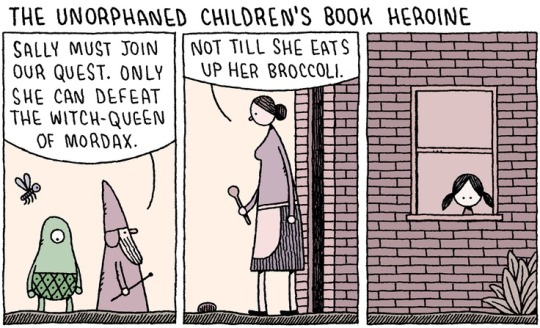
By Tom Gauld
884 notes
·
View notes
Text
In my mind are all the tides, their seasons, their ebbs and their flows. In my mind are all the halls, the endless procession of them, the intricate pathways. When this world becomes too much for me, when I grow tired of the noise and the dirt and the people, I close my eyes and I name a particular vestibule to myself; then I name a hall.
Susanna Clarke, Piranesi
#book quotes#literature#susanna clarke#piranesi#fantasy literature#fantasy quotes#books and libraries#books and reading
403 notes
·
View notes
Text
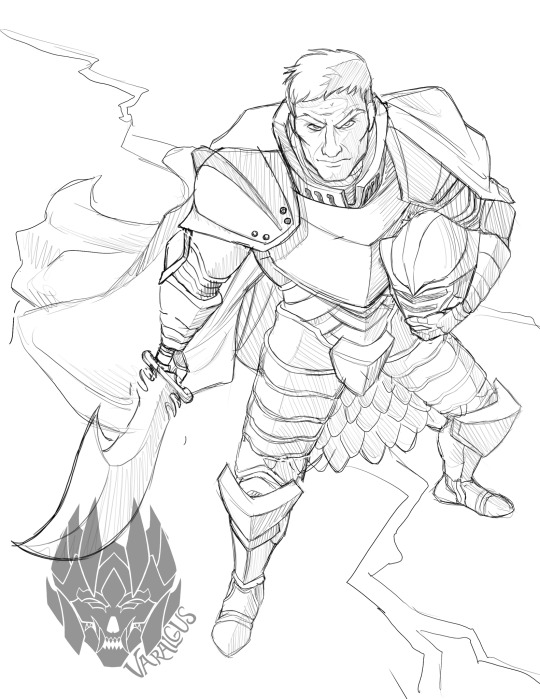
Dalinar Kholin. Big Ol’ WIP of my favorite bondsmith. I’d argue that his character arc and development is on par with Prince Zuko, one of the most well written characters I’ve read.
#fantasy#illustration#artwork#fantasy character#digital painting#sketch#digital sketch#stormlight archive#stormlight#dalinar kholin#dalinar#brandon sanderson#fantasy literature#kaladin stormblessed#knights radiant#roshar#alethi#bondsmith#the shattered plains#reading#fanart#stormlight archive fanart#stormlight fanart#stormlight spoilers#shardplate#oathbringer#the way of kings#words of radiance#rhythm of war#cosmere
296 notes
·
View notes
Text
Stick em with the pointy end
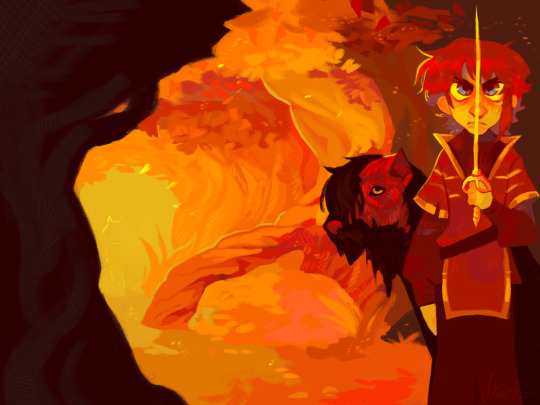
#arya stark#arya#arya stark fanart#the hound#arya asoiaf#the hound asoiaf#the hound game of thrones#sandor clegane#sandor clegane fanart#game of thrones fanart#game of thrones#got fanart#a song of ice and fire#asoiaf fanart#a song of ice and fire fanart#needle#needle asoiaf#fantasy art#fantasy#fantasy literature#george rr martin#grrm#my art
86 notes
·
View notes
Text
"Love doesn't solve problems . . . Solving problems solves problems."
Xiran Jay Zhao, Iron Widow
#Xiran Jay Zhao#Iron Widow#solving problems#problem solver#problems#solutions#Chinese Canadian literature#fantasy book#fantasy literature#quotes#quotes blog#literary quotes#literature quotes#literature#book quotes
195 notes
·
View notes
Text
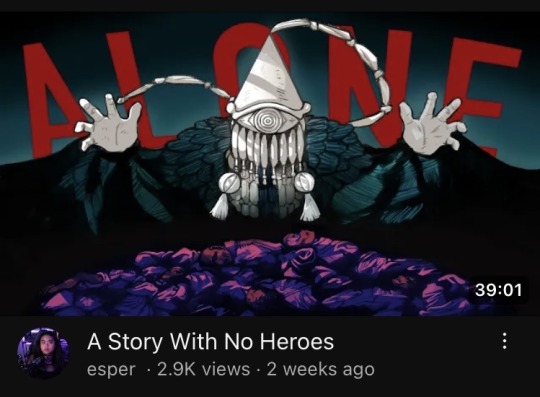
youtube
#witch hat atelier#a story with no heroes#heroism#no heroes#video essay#writing#worldbuilding#worldbuilding stuff#fantasy#fantasy world#fantasy writing#manga#anime and manga#anime#anime video#manga video#anime community#manga community#fantasy literature#fantasy manga#tumblr recommendations#recommend#recommendation#youtube#youtube content#youtube recommendations#youtube video#video recommendation#youtube link#video link
57 notes
·
View notes
Text
The thing that I always found abominably fascinating and insanely mind-blowing with the Earthsea series is that it breaks all the worn-out, over-used, “seen everywhere” cliches of fantasy people complain about today and try to avoid.
Tired of your typical Europe-setting? Here is a world of islands influenced by a lot of various non-European civilizations!
Tired of having a white-predominant cast? Here is a series where people of color are the dominant ethnicities and the white are the minority and bizarre barbarian foreigners from far away!
Tired of having the heroes go on grand and perilous monster-slaying quest to fight some dark overlord or fetch a magical item? Here are books where the villains are elusive, abstract and philosophical threats, where the quests to defeat them are very down-to-earth, solitary and rely more on self-search and the understanding of human nature rather than great exploits.
Tired of seeing the same old-worn out fantasy races tropes? None of this here!
This book series was created with the intention of subverting, avoiding or breaking the new tropes and stereotypes that were rising up with the success of Tolkien’s work. It was made to be different and ground-breaking and stereotype-crushing, and it worked extremely well, becoming a classic of fantasy literature and influencing the genre massively... And yet, people only rediscover it today, and know about it today somehow. (Well a “large” today including the dozen of last years of so).
This series is the perfect example of the “new” fantasy that rises up in the modern era, as an attempt to “break off” from the “traditional” or “cliche” fantasy... And the first book has been sitting there since the END OF THE 60s!!!
There are more examples I could point out of books that present to us a completely out-there, trope reinventing, stereotype breaking form of fantasy - and that yet have been there since the 70s or the 80s, or even before! As I went back in time to see several of the “classics” of fantasy literature, I came to understand something - a lot of the “cliches” and “stereotypes” and “over-used tropes” of fantasy people complain about today were not at all dominant for a very long time. If you believe the words of many people out there, you imagine fantasy never had black characters or queer characters or non-European settings or non-Tolkienesque plotlines until the 2010s or something... Which is not true. Fantasy was such a varied, bizarre, diverse genre in its literary form all throughout the 20th century, and many “old” works of the first generations of the post-Tolkien fantasy are basically what people want to see today as “pattern-breaking and fresh new fantasy”.
The Tolkienesque-fantasy and all of its cliches and stereotypes were not so much dominant as just present in a handful of massively popular and widespread works - the case of the Shannara series can be pointed out, as its first book was PRAISED at the time for being able to recreate a Tolkien story in the 70s, and it was because it was mostly a copy of the Lord of the Rings that it got so popular (and why it is not well-liked today). And then the 80s rolled and early D&D reignited the flame of the Tolkien-inspired fantasy. By the 90s, it seemed Tolkien had been used and over-used to death, and people didn’t trust it all anymore... Which is why David Eddings’ Belgariad series was created. Its key point was to take back all the elements of the traditional epic fantasy story, but reassemble them, freshen them up, twist them slightly, all of that to re-create a by-the-book BUT fresh, new and interesting series. It was an attempt at prooving that, with innovation and some twists and modernization, the Tolkienesque fantasy would not die - and it worked massively well. And then in the 2000s, the Lord of the Rings movie sealed the deal.
All these works make it look like fantasy had always been copying or taking inspiration from Tolkien. But it is false. It is true that most of the classics are tied to Tolkien, but not always in imitation or re-creation - in the case of “Earthsea”, there was a willing attempt at getting away and inverting the Tolkienesque fantasy to create a fantasy that went the very opposite direction. Same thing with the Elric Saga, also designed to be the reverse or opposite of The Lord of the Rings, and which in turn became the classic of another new genre of fantasy: dark fantasy. And Conan in all that? People forget that the Conan the Barbarian series were just as influential for fantasy works as Tolkien’s Lord of the Rings was. The Elric Saga, again, was created to completely reverse and avoid the Conan-like fantasy. A similar thing was done with Leiber for his “Fafhrd and the Gray Mouser” series, which was designed to break away from the Conan “heroic fantasy” style and reinvent the genre in a new direction.
There are so many “old” and “classic” works of literary fantasy that actually do not feel like a “classic” at all because they have all the vibes, elements and expectations one has from a non-classic, non-traditional fantasy... BUT THEY ARE THE FOUNDATIONS, they are the basis and classics and inspirations of fantasy. And it all shows this huge gap between what people think fantasy is, and what fantasy really was - it is a fascinating case study of how one specific trend somehow got over the entire genre. Imagine a world where people think Gothic novels can only have a vampire or the ghost of a judge, and must be Bram Stokers-inspired, and that everybody points out they are tired to see Dracula-expies everywhere... Only to discover the stories of Edgar Allan Poe and be baffled by them and their “inventivity” and “breaking of patterns”. I’m sorry, that’s the fastest comparison I can make, but this feels just like that. There is this strangely specific idea of what fantasy is today forged on a few items... I think, beyond the massive success of Tolkien and imitators, D&D probably is also to “blame” for how people see fantasy today.
But even then, D&D took inspiration from so many non-conventional works of fantasy... Yes many became “classics” now, though often ignored by the masses - The Elric Saga, and Fafhrd and the Gray Mouser were big influences. But take the Jack Vance series “The Dying Earth”, another big inspiration on early D&D. Take that. This series is from the 50s - FROM THE 50S - and yet it is a unique genre of sci-fi fantasy that I haven’t seen much being done around, and it creates such a weird, whimsical, bizarre, surrealistic fantasy world, it feels completely unique. And again, it is a classic of the 50s and 60s.
I don’t really know where I try to go with this but the important thing is: when someone wants to read “non-traditional” or “non-Tolkienesque” fantasy, or “non-stereotyped” fantasy, it is possible, instead of searching for every new author nowadays (not a bad thing to do that though), it is possible to just go back in time, look back at the books of the 70s, 60s and 50s, and find there a novelty, a freshness and an inventivity that is lacking in a mass production of modern day fantasy. And that such a thing is possible is truly crazy for me. I don’t know if such a thing happened with other literary genres, but it is insane that sometimes in fantasy, to see “new” things you just have to look back into the past.
#fantasy#fantasy literature#tolkien#tolkienesque literature#earthsea#ursula le guin#the dying earth#the elric saga#i don't know if I should tag them all#this is really just a random shot here#fantasy stereotypes#fantasy cliches#fantasy tropes
169 notes
·
View notes
Text


“This is a very bad idea,” Jacks murmured.
“I would have thought you liked bad ideas.”
“Only when they’re mine.” He stood very still as her fingers reached
✧.*
#evajacks#jacks prince of hearts#jacks x evangeline#jacks of the hollow#evangeline fox#ouabh#tbona#acftl#acftl spoilers#ella edit✨#storyseekers#booknet#fantasy literature#fictionnet#yalit#yalitedit
81 notes
·
View notes
Text
It's only called Rivendell because Elrond's Daycare and Orphanage doesn't have that Elvish feel to it.
#lotr#rivendell#elrond's daycare and orphanage#lotr humor#lord of the rings#lotr fandom#lord of the rings fandom#literature#books and reading#fantasy#fantasy books#fantasy literature#tolkien#jrr tolkien#jrrt
562 notes
·
View notes
Text


Idiots in class (both groups are failing)
#tlt#the locked tomb#gideon the ninth#gideon nav#harrow the ninth#tlt fanart#palamedes sextus#camilla hect#ianthe tridentarius#coronabeth tridentarius#fantasy art#fantasy books#fantasy literature
8K notes
·
View notes
Text

In my “everything reminds me of them” era but for Griddlehark 😭 Tamsyn Muir what have you done to me
(song: Roe Kapara - What Is My Life Worth)
#gideon the ninth#gideon nav#harrowhark nonagesimus#the locked tomb#tamsyn muir#roe kapara#sapphic#lesbian#wlw#fantasy literature#I missed reading books that make me feel things#So glad I finally read Gideon#Now I just have to survive the next 2 and the wait for Alecto#griddlehark
35 notes
·
View notes
Text
There was a memory in the land. It was all around him. He was walking through it. It whispered to him as he walked…
Robert Holdstock, Lavondyss
#book quotes#literature#robert Holdstock#Lavondyss#books and libraries#books and reading#fantasy literature#mythic#nature quotes#walking in nature
152 notes
·
View notes
Photo

The land is all too shallow
It is painted on the sky
And trembles like the wind-shook rain
When the Raven King goes by.
The Raven King, by BohemianWeasel
#the raven king#john uskglass#jonathan strange and mr norrell#susanna clarke#literature#fantasy#fantasy novels#fantasy literature#magician#king#fantasy art#men in fantasy art#jsamn
124 notes
·
View notes
Text
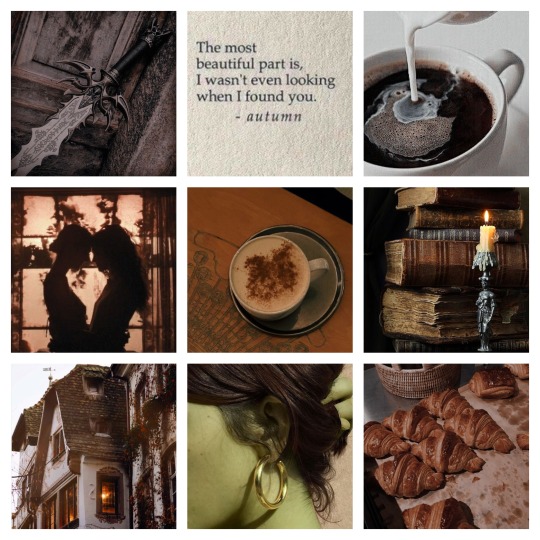
currently reading - Legends & Lattes by Travis Baldree
#aesthetic#moodboard#currently reading#books#literature#edits#legends and lattes#legends & lattes#fantasy literature#cozy fantasy#book moodboard
53 notes
·
View notes